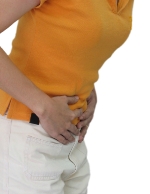IBS – Approach to Treatment

The general approach to treating irritable bowel syndrome centers on the theorized pathologic mechanisms of the disorder: 1) disturbed GI motility, 2) hypersensitivity to pain, and 3) psychologic factors. The treatment strategies all attempt to correct or improve one or more of the mechanisms above. It begins with each patient undergoing a thorough work-up and being classified into one of two groups: Diarrhea predominant IBS or Constipation-predominant IBS. These groups will help guide and suggest initial remedies.
Depending on the symptoms, IBS can be treated pharmacologically (with medication) or non-pharmacologically (without medications) or both strategies can be used. The onset, extent, and any complicating factors have a great influence on the therapy used. The medications can be divided into antidiarrheal agents, laxatives, bulking agents, and antidepressants and are helpful in treating constipation, diarrhea, bloating and pain.Â
Even within these categories the medications used can belong to a certain class of drugs but be used for another function. An example is the antidepressant tegaserod (a 5-HT4 agonist) which is used as a laxative in women with constipation predominant IBS (IBS-C). The antidiarrheals include the antispastic agents dicyclomine and hyoscamine. It also includes alosetron (or lotronex) a 5-HT3 antagonist.
Bulking agents include many forms of fiber. Psyllium (Metamucil) is a popular medication for providing bulk to stool and for the increasing stool frequency. Antidepressants are used when there is evidence or suspicion that psychological factors are complicating or influencing the symptoms. Additionally, antidepressants can be used as an antidiarrheal.
Non-pharmacological treatments have been explored and are now gaining in popularity. These treatments also are aimed at the mechanism of the disease process. Some of them suggest lifestyle changes, including watching your diet. Certain foods that can upset the bowels (lactose) or incite the immune system are avoided. Probiotics have been introduced to help alleviate symptoms by directly influencing the colonic flora. Complementary and alternative medicine techniques, including acupuncture, are also being used and developed.
References:
Lehrer J. Irritable Bowel Syndrome. eMedicine [web page]. Aug 8 2007; www.emedicine.com/med/TOPIC1190.HTM. Accessed June 24, 2008.
Schoenfeld P. Efficacy of current drug therapies in irritable bowel syndrome: what works and does not work. Gastroenterol Clin North Am. Jun 2005;34(2):319-335, viii.
